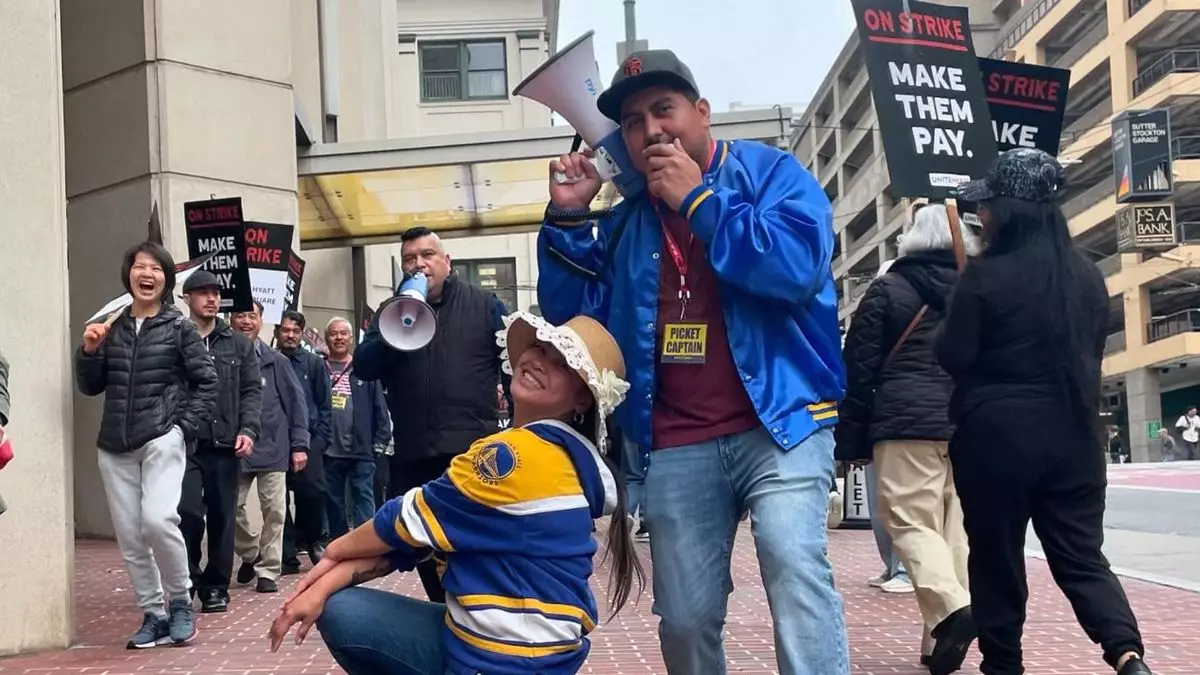In a significant manifestation of labor unrest, recent hotel worker strikes across the United States have highlighted growing discontent in the hospitality industry. The situation escalated dramatically when over 1,500 hospitality employees in San Francisco staged a walkout on September 22, 2023. This action came in tandem with ongoing strikes in San Diego, where hundreds had been protesting since September 1. The aggregate of striking employees now exceeds 2,200 in these two major California cities alone, signaling a dramatic increase in collective action within the sector.
The strikes are primarily organized by the Unite Here labor union, a powerful force advocating for the rights of hospitality employees. Affected establishments include renowned chains such as Hilton, Hyatt, and Marriott International, with specific hotels like the Grand Hyatt San Francisco and Hilton San Diego Bayfront being directly involved. As the disruption spreads, it has become evident that the strikers are not just voicing isolated grievances but collectively seeking improvements in wages, staffing ratios, and the reinstatement of services that were altered during the COVID-19 pandemic.
Impact on Travelers and Hotel Operations
The ramifications of these strikes reach beyond the striking workers themselves, affecting travelers and hotel operations alike. Unite Here has actively encouraged travelers to reconsider their lodging choices, advising them against eating, sleeping, or conducting meetings at striking hotels. This form of public pressure aims to elicit sympathy not only from the general public but also from hotel management, which may be compelled to address the workers’ demands as business begins to dwindle.
With operational disruptions likely as a result of low staffing caused by the strikes, travelers should be cautious, as many services may either be unavailable or significantly reduced. To aid them, Unite Here has developed a Labor Dispute Map accessible on FairHotel.org, allowing travelers to make informed decisions about their accommodations during this tumultuous period.
A Broader Labor Movement
The unrest in San Francisco and San Diego is part of a larger wave of labor actions affecting nine cities across the United States. The movement evokes a historical context in which unions seek to reclaim power in an industry where employee rights have long been overshadowed by corporate profits. Additionally, recent strikes in Boston, where over 1,200 hotel workers participated in a limited-duration walkout from September 19 to September 21, indicate that these grievances are widespread and systemic.
As the signs of labor discontent grow, it becomes increasingly clear that hotel workers are fighting not just for better pay or conditions, but for recognition and respect in an industry that has undergone substantial upheaval. The ongoing struggle exemplifies the ongoing tension between labor and management, and as the situation develops, all eyes will continue to watch how hotel chains respond to these pressing demands from their workforce. The outcomes of these strikes could very well set a precedent for labor negotiations in the hospitality sector moving forward.

